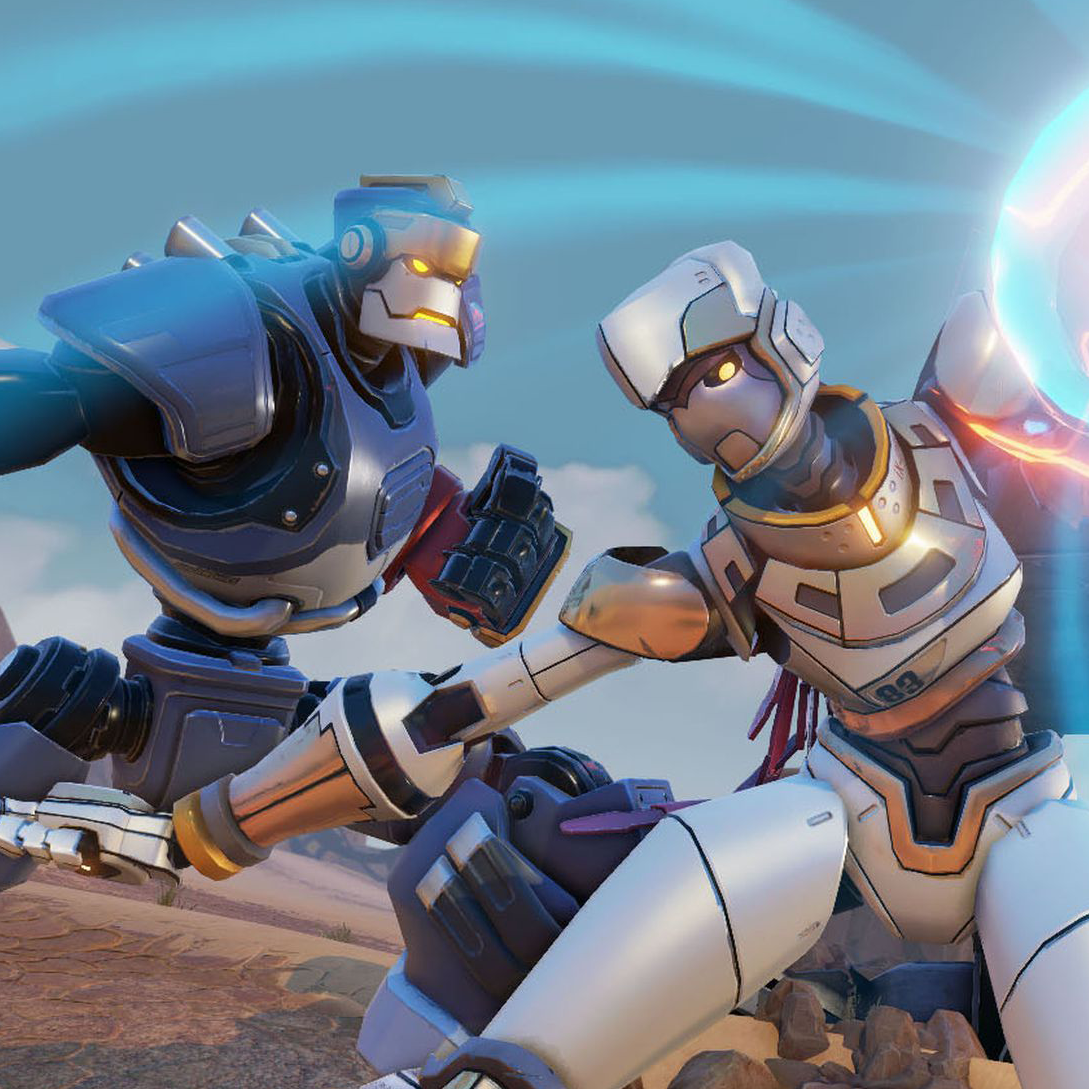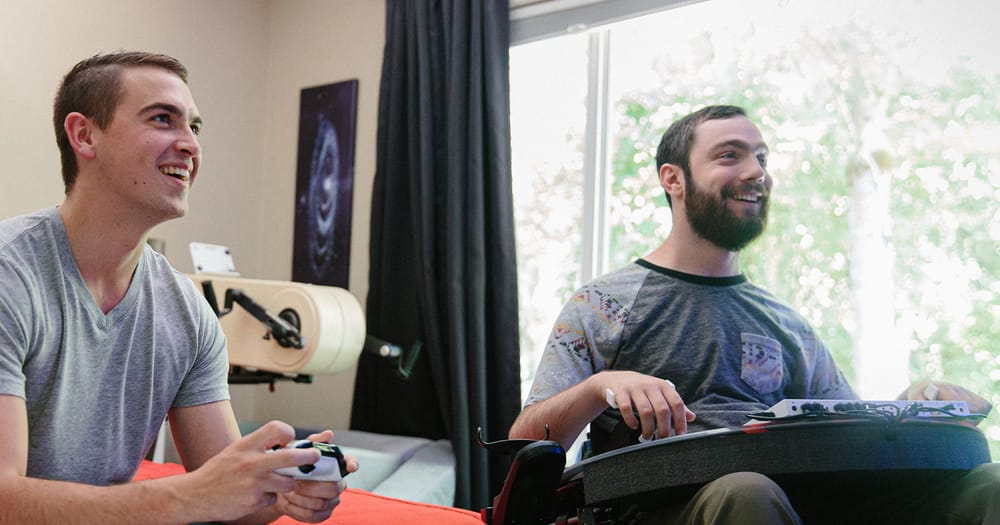Welcome to the first installment of Good Trouble’s Accessibility Spotlight series, where we take a look at the passionate efforts being made by development studios to make gaming more viable for the millions of players with disabilities across the globe. Each article will focus on a different piece of hardware, software, or design-discipline that has made an impact in accessible game development.
To kick things off, let’s take a look at Rising Thunder.
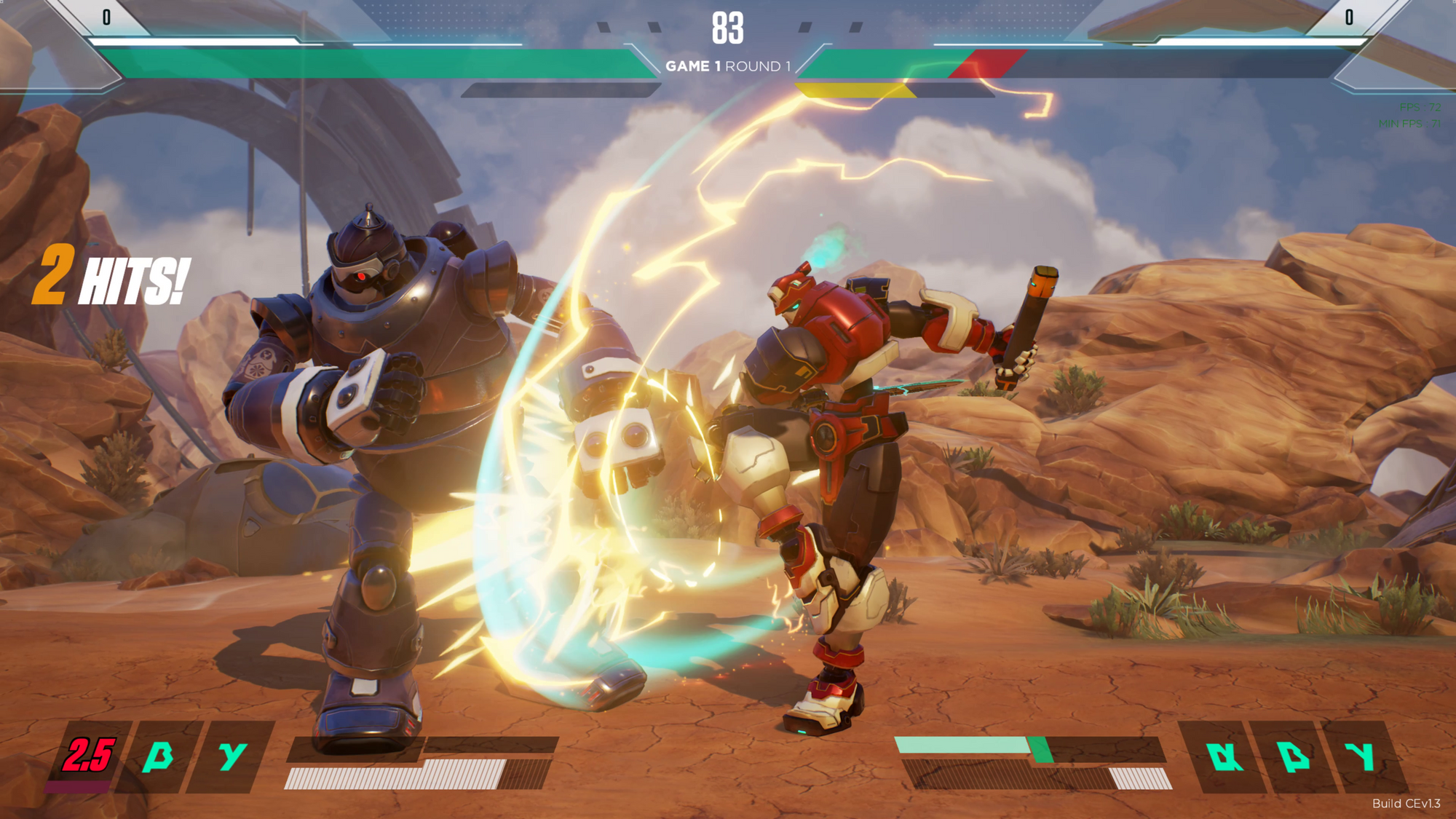
Rising Thunder was an in-development fighting game from Radiant Entertainment, a California-based studio founded by Tom and Tony Cannon. Known for their contributions to the fighting game community both culturally through the founding of the annual fighting game tournament EVO and technically through the creation of the GGPO online netcode standard, the Cannon brothers’ authority over the genre is hard to understate. The brothers teamed up with former Capcom Director of Community and Marketing Seth Killian, a juggernaut of the fighting game genre in his own right. Together, Radiant Entertainment set out to make Rising Thunder an expectation-defying accessible fighting game.
Starring a cast of humanoid robots punching each other silly, Rising Thunder was a traditional one-on-one fighting game that seemingly drew inspiration from the hard-hitting, punchline-slinging Saturday morning cartoons of decades past. The clean, colorful visuals were not only a conscious stylistic choice, but also one of the many instances in which accessibility is seamlessly integrated into the Rising Thunder experience. Each of Rising Thunder’s playable characters are much larger scale than a typical fighting game, allowing players to clearly identify where they are on screen when contrasted against one of the game’s low-density backgrounds. The increased size of these characters also allows for better definition of their limbs, which combined with the comparatively slower-moving nature of Rising Thunder’s combat animations gives players greater opportunity to read the move their opponent is sending their way and respond accordingly.
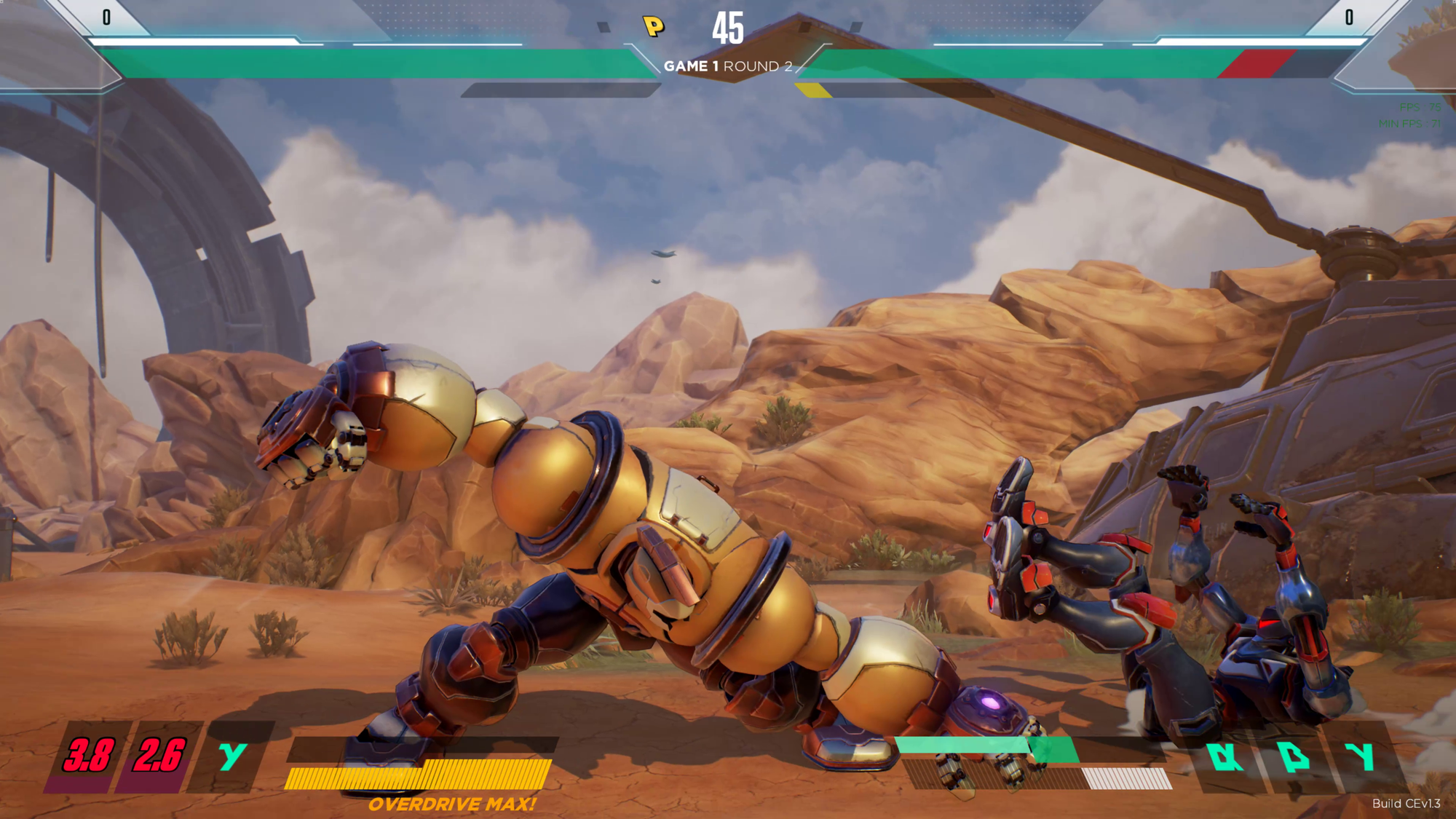
Auto-combos are the name of the game in Rising Thunder. Whereas other fighting games ask the player to memorize dozens of inputs to play viably, Rising Thunder forgoes such expectations in favor of a much simpler “one-button, one-combo” system. A single button-press can execute a multi-hit combo of punches and kicks, unlocking a metaphorical goldmine of accessibility potential. Each of these auto-combos are represented on screen with their own icons and associated cooldown timers in an Overwatch-HUD-like fashion. This allows players on both sides to be aware of what their opponent is capable of, and when.
With such thoughtful accessibility considerations implemented at the core level, Rising Thunder will be remembered as a pioneering project in the fighting game world. A Reddit post from one of Rising Thunder’s initial alpha test periods comes from a user with a nervous-system disorder, praising the game’s accessibility efforts and reinforcing that because of these choices, players of varying levels of ability were able to compete.
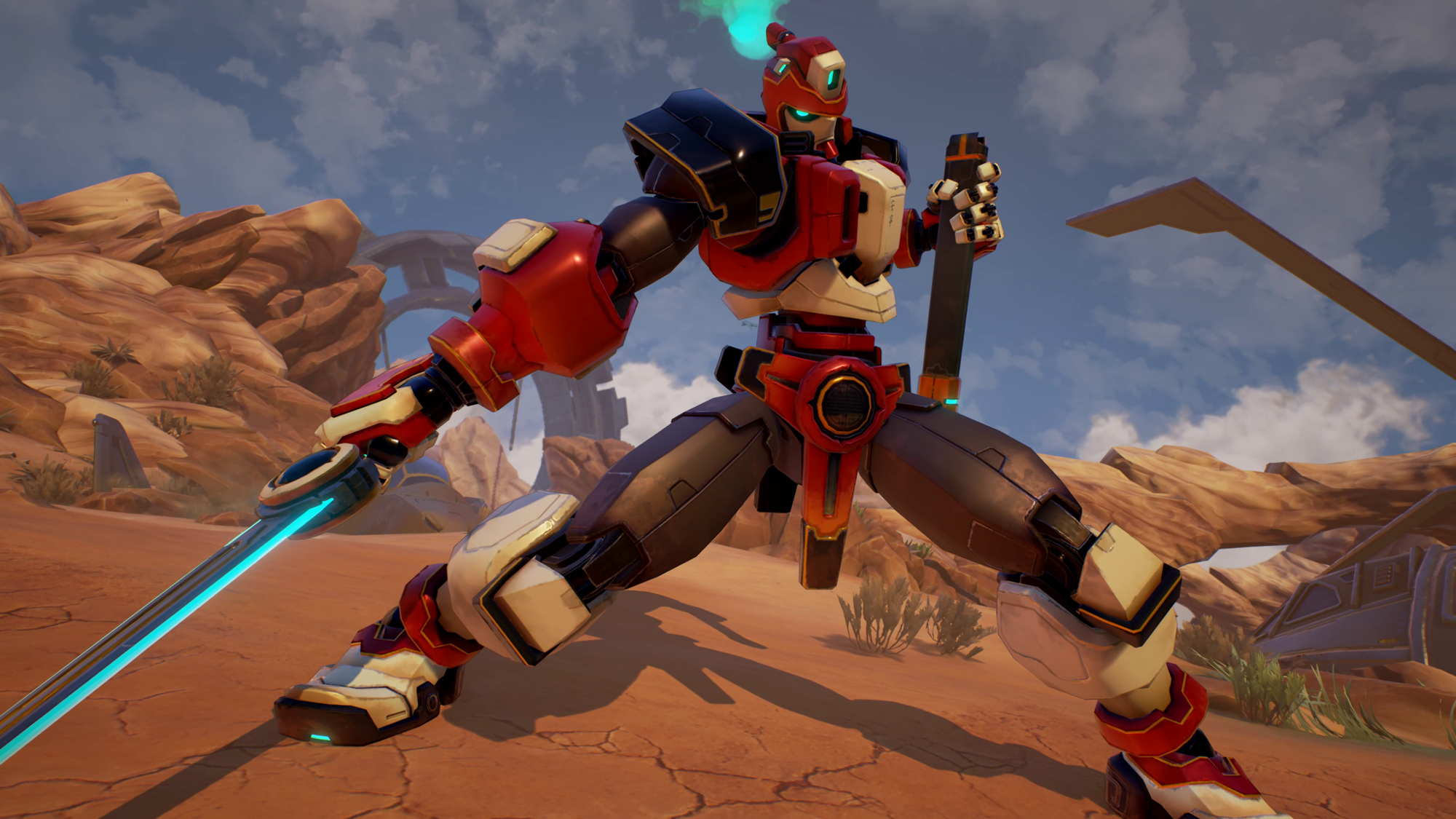
While Rising Thunder didn’t quite become a household name, its legacy lives on in a few different forms. In March of 2016, Radiant Entertainment was purchased by League of Legends’ Riot Games and the Rising Thunder name was scrapped. The game has since re-debuted as a new product codenamed “Project L”, a fighting game that pulls characters and locations from the League of Legends universe. Despite these changes, it’s easy to assume that Project L will maintain the accessibility-forward design that made Rising Thunder so appealing in the first place. The powerful one-button moves of Rising Thunder easily equate to League of Legends’ iconic character abilities, and the painterly look of Riot Games’ fantasy realms should make for an easily readable experience. But if the traditional Rising Thunder experience is what you’re looking for, you can download the community build of the game for free off reddit and play privately with friends both online and offline today. This is a great way to experience what made the original project so special (and earn some fighting game street-cred too).
